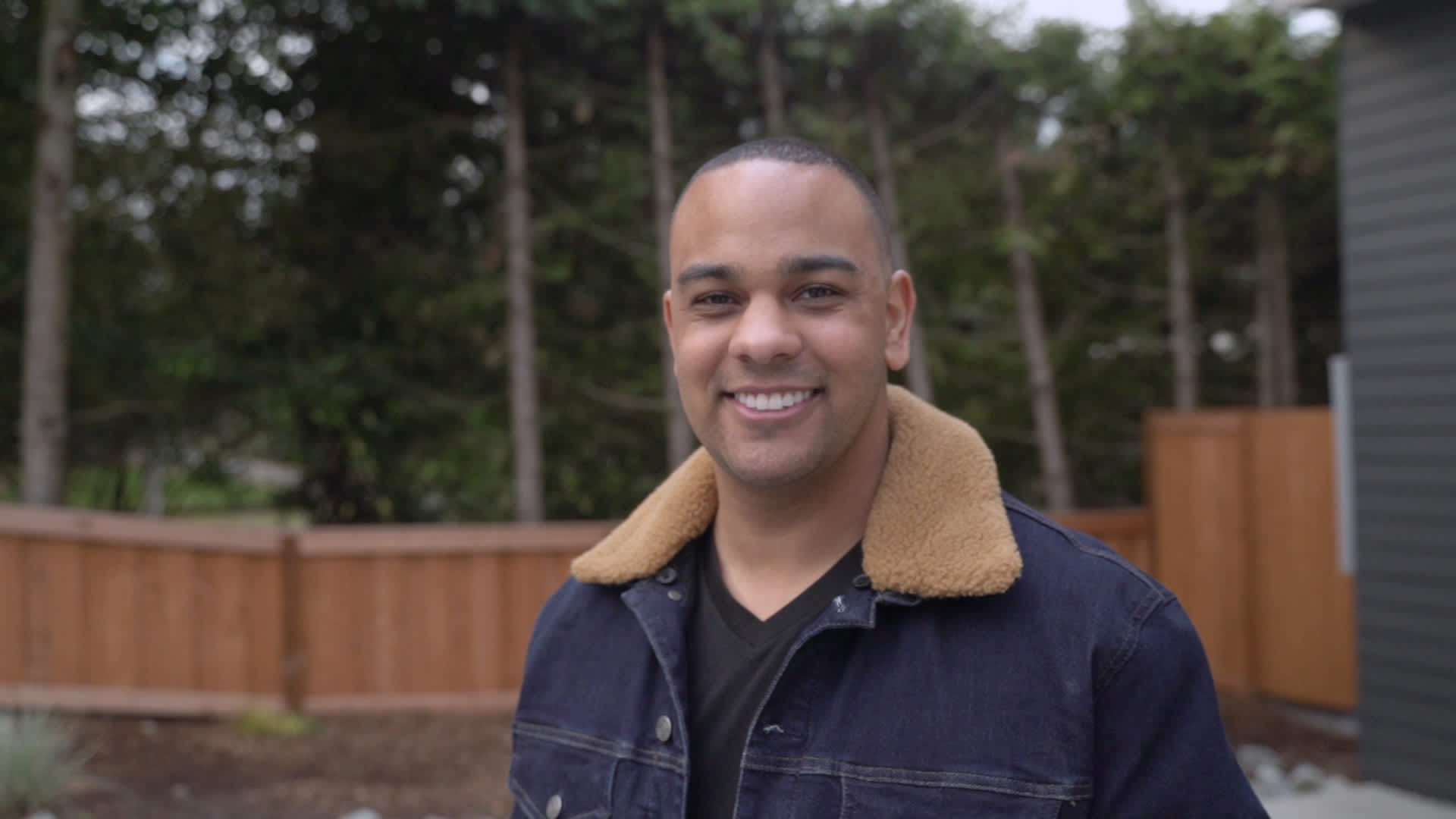
Real estate mogul and "Million Dollar Listing" star Ryan Serhant is impressed by millennial millionaire Todd Baldwin, who has a job in commercial insurance sales but makes the bulk of his money investing in real estate.
"He's worth $1.2 million by the time he's 25," Serhant points out while reacting to a Millennial Money episode featuring Baldwin. "When I was 25 in New York City, I was worth like 1.2 thousand, probably."
Baldwin, now 28, and his wife Angela own six rental properties in the Seattle area and bring in about $460,000 per year in rent. After expenses, including mortgage payments, taxes, insurance and utilities, they keep about $150,000 of that per year.
At 36, Serhant is one of the most successful brokers in the world. He relates to Baldwin on more than just a real estate level. "I connect to Todd to the core," he says after learning that Baldwin's first job was shoveling manure for $3 an hour. "I remember my first job ever was picking up sticks and being paid per stick."
Get Philly local news, weather forecasts, sports and entertainment stories to your inbox. Sign up for NBC Philadelphia newsletters.
Serhant also shoveled driveways and started a woodcutting business to make extra cash as a kid. "My parents made it very, very clear to me to understand the value of the dollar," he says, adding that it appears Baldwin's mother did the same thing. Baldwin was raised by a single mom who worked multiple jobs to support her kids.
"You need to talk to your kids about money so they can understand how it works so that they're never afraid of it and that they're never stupid with it," says Serhant, who became a dad last year.

While Baldwin earns a lot, he's still "super frugal," he told CNBC Make It in February 2020. He and his wife have roommates and share a 2009 Ford Focus.
Money Report
They also find creative ways to save money. One is "secret shopping," where you're reimbursed for things like dining out, going grocery shopping, seeing a movie and even visiting hotels and casinos after filling out a survey about the experience. They also do "credit card churning," which is when you open up a new credit card, take advantage of the account bonus, pay it off completely and "then rinse-and-repeat with the next card," Baldwin explains.
While Serhant says that he "appreciates" Baldwin's savings tactics, he encourages him to consider the value of his time. "I can count coupons and credit card shop and try to get as much for free as possible and live on points all day long, but you also have to remember what the cost of time is. You only have 1,000 minutes a day that you're not sleeping or eating — and you've got to make sure that those minutes are used to the absolute best of your ability."
Serhant wants Baldwin to think about whether or not it's worth his time to set up a "secret shop" in order to save $100 or so on a meal: "Could you have made another $100 or $200, or $1,000 or $2,000, in the amount of time it would take you to save the $100?"
"Opportunity cost is a real, real cost," Serhant emphasizes.
In general, though, he's impressed with how Baldwin spends and saves his money: "He is a great example of somebody who's really smart with their money."
Check out Serhant's full reaction to Baldwin's money habits.
Check out: The best credit cards of 2021 could earn you over $1,000 in 5 years






